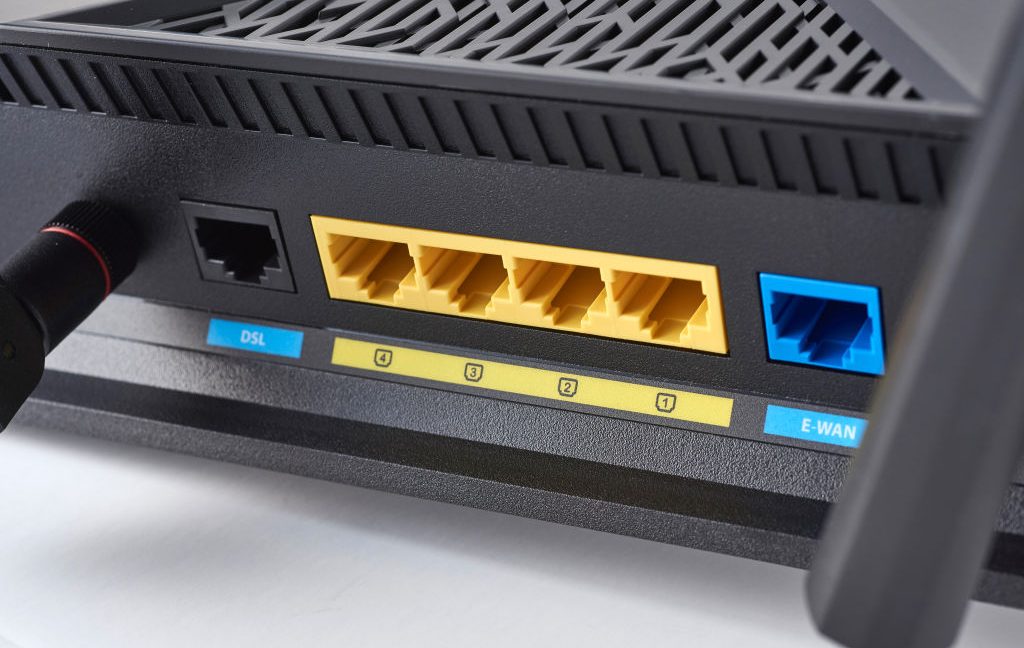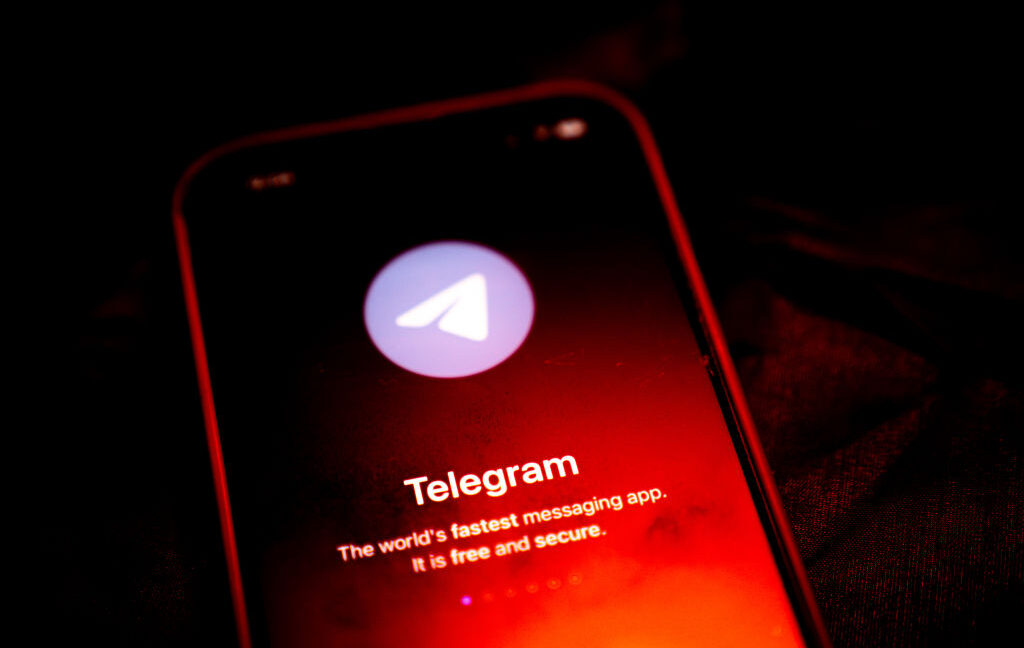Millions of Americans Who Have Waited Decades for Fast Internet Connections Will Keep Waiting After the Trump Administration Threw a $42 Billion High-Speed Internet Program Into Disarray.
-
To be fair, this federal program was a cluster eff since they started it in about 2010. It passed a bunch of grant money through to the states, which all did different "things" with it. Most held semi-public meetings and planning sessions for 5-10 years or wrote detailed planning documents but never delivered any physical infrastructure (actual results to the residents).
Still no justification for this money to be funneled to felon musk.
-
This post did not contain any content.
That article has a pretty extreme example: guy on 21 acres atop a steep ridge who doesn’t have phone service or running water or probably any infrastructure. There’s going to be people you can’t reach with fiber and this may be one of them. We can argue about that when the other 99% has fast internet service
-
I would think that Muskrat would like more customers for his satellite internet business.
That is apparently going to have competition soon.
But ... yeah. Operating via satellites is profitable for sparsely populated areas, operating via wire - for densely populated ones. In addition to that Earth's orbit is not under anyone's sovereignty.
Both have their uses, but, I think, in locations in a developed country with old infrastructure because it's not profitable, - this means there won't be any.
The sad part is that if, say, I want to have unabused Internet connectivity from Russia, a Starlink terminal is not my solution, cause Elon still wants to be friends with those obnoxious people. And also if it were a solution, a terminal could be triangulated and my ass would meet a soldering iron. Maybe not, but some fines.
-
This post did not contain any content.
All of whom voted for this. So.
-
This post did not contain any content.
Capitalism perverts all good intentions.
It twists them to make a quick buck.It's a cancer on society.
-
To be fair, this federal program was a cluster eff since they started it in about 2010. It passed a bunch of grant money through to the states, which all did different "things" with it. Most held semi-public meetings and planning sessions for 5-10 years or wrote detailed planning documents but never delivered any physical infrastructure (actual results to the residents).
Some states / towns hired ISPs who just pocketed the money with no consequences. Some towns even got fed up with no progress and started their own ISPs only to get sued by said corrupt ISP. Looking at you Verizon FiOS.
-
To be fair, this federal program was a cluster eff since they started it in about 2010. It passed a bunch of grant money through to the states, which all did different "things" with it. Most held semi-public meetings and planning sessions for 5-10 years or wrote detailed planning documents but never delivered any physical infrastructure (actual results to the residents).
Speak for yourself.
My city is rolling out fiber.
-
To be fair, this federal program was a cluster eff since they started it in about 2010. It passed a bunch of grant money through to the states, which all did different "things" with it. Most held semi-public meetings and planning sessions for 5-10 years or wrote detailed planning documents but never delivered any physical infrastructure (actual results to the residents).
I'm sure that there are examples of actually wasted money, but just putting it out there that planning is fucking important. There have been several high profile projects, like Texas high speed rail, where planning was the hard part and the project got canceled as they were ready to break ground because "there was no progress". Cue* Republicans "the government does nothing" after they stopped anything from happening. Infrastructure cannot operate on election cycle timelines.
Digging in the ground and integrating with existing infrastructure isn't just a plug and play operation. Leases and liens need to be sorted out. Estimates of current and future demand needs to be sorted out so you don't install useless networks. Fiber isn't that heavy, but "can the existing conduits under bridges/roads/etc support it and/or do they have room to without a complete replacement" isn't a trivial question for backbone lines.
Winging it just causes more problems as you find things you didn't anticipate and cause delays while having to continue paying contracts so work can resume once the delay is cleared. If you don't, the contractor is on to their next job and unavailable for an effectively random amount of time. While everyone is mad at you that "no work is being done".
It could be done faster, but it would cost more. Because planning is really important to keep multi-million/billion dollar projects accountable and on track.
-
This is exactly what some of my extended family uses because there’s literally no other option. Not even cellular.
This isn’t even up in the mountains or something. This is just rural Alabama where kids are struggling to do homework because they just don’t have access, and it all but guarantees that their technology skills will remain woefully outdated.
I remember when they had DSL not that long ago and I would turn off updates on everything because it was a complete waste of time to attempt.
My grandparents lived in rural OK and had dial-up until 2018 when they finally were able to get a 2mbps DSL line. It really wasn’t much faster than the dial-up.
-
That article has a pretty extreme example: guy on 21 acres atop a steep ridge who doesn’t have phone service or running water or probably any infrastructure. There’s going to be people you can’t reach with fiber and this may be one of them. We can argue about that when the other 99% has fast internet service
Years ago my neighborhood was wired for fiber, well all except for 24 of our houses because it wasn't profitable, copper still came on our side though... Now that's been turned off so the 24 of us have the option of cable or wireless.
Having to stare at a coil of fiber across the street on the end of the pole (not even buried fiber, its on the damn poles) while I enjoy overpaying for 48Mbps... so fast it must be high speed (seriously debated a wireless link to the house across the street but I'm a stickler for the rules).
-
All of whom voted for this. So.
Do you have any idea what you're talking about? No.
It doesn't matter what rural areas vote for. They're all gerrymandered to shit just like the cities are.
The political elite on both sides have a good chunk of us fighting each other instead of them. So, congrats on falling for the same bullshit.
-
Do you have any idea what you're talking about? No.
It doesn't matter what rural areas vote for. They're all gerrymandered to shit just like the cities are.
The political elite on both sides have a good chunk of us fighting each other instead of them. So, congrats on falling for the same bullshit.
Do you have any idea what you're talking about? No.
I’ve seen more than my share of “red” counties. They’re only gerrymandered when there’s an obvious threat to red state hegemony. Full of good people who fall for stupid lies every goddamn time despite the world of information available to them. The FoxNews miasma that hangs like suffocating humidity in every auto garage and bleak box store parking lot. The fist of Jesus in every lifted truck window.
Take your “both sides” bullshit to someone else.
-
This post did not contain any content.
"America First" is one of his biggest lies
-
This post did not contain any content.
So very glad I got to benefit from this 3 years ago, it is a true shame if it goes away. I get to be rural and work at a company in the city.
-
To be fair, this federal program was a cluster eff since they started it in about 2010. It passed a bunch of grant money through to the states, which all did different "things" with it. Most held semi-public meetings and planning sessions for 5-10 years or wrote detailed planning documents but never delivered any physical infrastructure (actual results to the residents).
Most of this money was also "allocated" but not really spent. So at least to Bidens credit money wasn't thrown away, it just sat there not doing what it was supposed to do.
-
Do you have any idea what you're talking about? No.
It doesn't matter what rural areas vote for. They're all gerrymandered to shit just like the cities are.
The political elite on both sides have a good chunk of us fighting each other instead of them. So, congrats on falling for the same bullshit.
Republican (but lets be fair here, most) states basically just threw their hands up and left it up to the "experts" (or their friends in the cable/local phone monopoly) for planning BEAD funds. Really it's a failure of American politics and a case study on how baseline corrupt the average state is.
The only place that has actually gotten its shit together is, of all places, North Dakota, they have almost universal fiber access across the whole state, if you have power, you probably have fiber. All of contiguous America could have the same, only local politics stands in the way.
Utah has also built out locally owned open-access municipal fiber, despite the best attempts from the Comcast/CenturyLink lobby and state legislature to kill it; among other projects in WA, TN, IA.
-
This post did not contain any content.
What's an average Internet connection like in the USA? How many megs down?
-
To be fair, this federal program was a cluster eff since they started it in about 2010. It passed a bunch of grant money through to the states, which all did different "things" with it. Most held semi-public meetings and planning sessions for 5-10 years or wrote detailed planning documents but never delivered any physical infrastructure (actual results to the residents).
I'm confused. The article is talking about "BEAD" which wasn't passed until 2021. You must be talking about a different program.
-
Speak for yourself.
My city is rolling out fiber.
I'm in Wyoming and fiber started rolling out in multiple cities with multiple different providers in each city two years ago. They got to my house earlier this year so I now have a 2Gb/s connection.
-
All of whom voted for this. So.
There isn't a single county in this country that votes 100% in either direction. So saying that "All of whom voted for this." is objectively incorrect.







